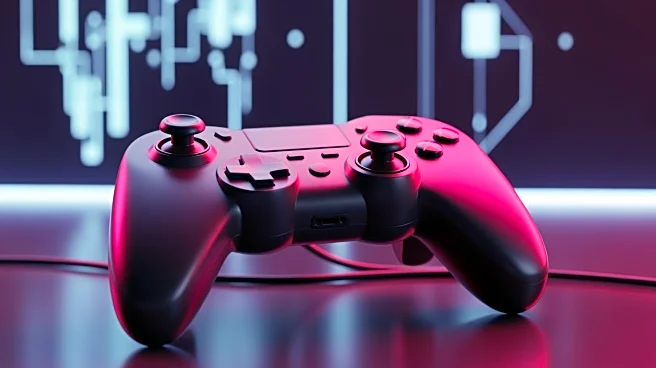What's Happening?
Nintendo has successfully won a lawsuit against Jesse 'Every Game Guru' Keighin, a streamer accused of livestreaming pirated Nintendo Switch games before their official release. The lawsuit, filed last
November, alleged that Keighin streamed leaked titles such as Mario & Luigi: Brothership and The Legend of Zelda: Echoes of Wisdom on more than 50 occasions since 2022. Despite receiving numerous takedown notices from platforms like YouTube, Twitch, and Kick, Keighin continued his activities, using unlawfully modified consoles and emulators. He also shared links to emulators for viewers to use. Keighin did not appear in court to defend himself, resulting in a court order to pay $17,500 in damages. Nintendo claimed that Keighin's actions caused millions of dollars in lost video game sales. The court granted an injunction against Keighin but denied Nintendo's request for an injunction against anonymous third parties and the destruction of devices used.
Why It's Important?
This legal victory for Nintendo underscores the company's ongoing efforts to protect its intellectual property and combat piracy. The case highlights the significant financial impact that piracy can have on video game sales, with Nintendo claiming millions of dollars in losses. The ruling serves as a warning to other individuals who might engage in similar activities, emphasizing the legal consequences of streaming pirated content. For the gaming industry, this case reinforces the importance of safeguarding creative works and maintaining control over distribution channels. It also illustrates the challenges companies face in enforcing intellectual property rights in the digital age, where content can be easily shared and accessed through various online platforms.
What's Next?
Nintendo's legal actions against piracy are likely to continue, as evidenced by a recent lawsuit filed against another individual, James C. Williams, for similar activities. The company is seeking $4.5 million in damages, indicating its commitment to pursuing legal remedies against those who infringe on its intellectual property. This ongoing legal strategy may lead to further court cases and settlements, as Nintendo aims to deter piracy and protect its market share. The gaming community and streaming platforms may also see increased scrutiny and enforcement of copyright laws, potentially affecting how content is shared and consumed online.
Beyond the Headlines
The case raises broader questions about the balance between content creation and distribution in the digital era. It highlights ethical considerations regarding the use of emulators and modified consoles, which can facilitate piracy but also serve legitimate purposes for game preservation and accessibility. The legal actions taken by Nintendo may prompt discussions about the role of streaming platforms in monitoring and regulating content to prevent copyright infringement. Additionally, the case may influence future policies and technological solutions aimed at protecting intellectual property while accommodating the evolving landscape of digital media consumption.








